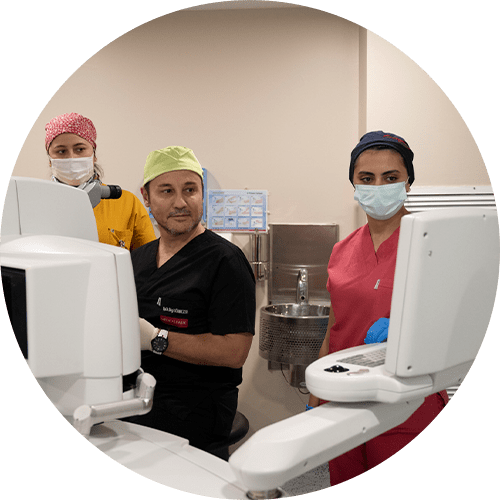AGE-RELATED YELLOW DOT DISEASE AND TREATMENT

When vision becomes blurry in the center
Age-related macular degeneration (AMD), also known as "macula disease," is one of the most common causes of impaired central visual acuity in older age.
It affects the macula – the small, central area of the retina responsible for sharp vision in the center of our visual field. Changes in this area make reading, recognizing faces, or working at close range more difficult.
The disease usually occurs after the age of 50 – and the risk increases significantly with age. The most important modifiable risk factor: smoking.
Take early signs seriously
The typical symptoms of macular degeneration are:
- Blurred vision in the center of the field of vision
- Distorted or wavy lines
- Faded or altered color perception
- Increasing difficulty reading or recognizing details
In the early stages, the disease often goes unnoticed. This makes regular eye examinations all the more important – especially after the age of 50.
Treatment options – individually tailored
Depending on the stage of the disease, various treatment options are available:
- Early stage: Taking special micronutrients and vitamins (e.g., AREDS formula) to slow progression
- Wet AMD: Intravitreal injections – i.e., medications are administered into the eye to inhibit the formation of new blood vessels
- Dry AMD: In advanced cases, vision preservation can be supported with optical aids or low-vision therapies
- Laser procedures: In selected cases, gentle laser techniques are used
Telescopic lenses – an option for severe visual impairment
In cases of severely impaired vision, the insertion of specially designed telescopic lenses into the eye can help improve near vision.
These lenses are not a substitute for treatment of AMD, but in certain cases, they can improve quality of life – especially when reading or recognizing details. Whether such a procedure is advisable should be carefully examined during an individual ophthalmological consultation.
Early detection is crucial
The earlier macular degeneration is detected, the better the chances of positively influencing the course of the disease. In our practice, we combine state-of-the-art diagnostics with many years of experience – and we provide you with personal and proactive support every step of the way.
- MAKE AN APPOINTMENT

